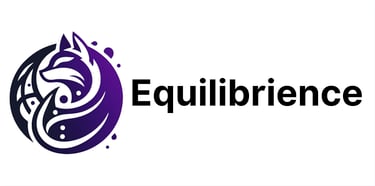Plan, Write, Publish: Project Management Strategies for Effective Writing
Writer's Block? Conquer It! Learn how project management skills can streamline your writing process, boost productivity, and help you achieve your writing goals.
PROJECT MANAGEMENTALL THINGS WORKSOCIAL MEDIAEFFICIENT COMMUNICATIONCONTENT CREATION
Aria Guzu
6/3/20244 min read


Project management is seen as an arduous discipline — specialists are often hyped control freaks orchestrating the corporate show. No offense taken.
Years ago, to be a project and/or operations manager was akin to a sort of sentence — you would be the one working 24/7. Long hours, stressful stakeholders, looming deadlines…
However, the current market deems project management-related skills as incredibly valuable. According to The Burning Glass Institute, research shows an increased demand for business-enabling skills.
Project management, data communication, and several others fall into this category. It is reported that “Possession of these skills, which persist in value over time, enables workers to earn more and enjoy greater job mobility” (Dawson et al, 2002).
I’m sure you’ve got the idea: project management is a strong tool elevating our careers. But what does it have to do with writing? Everything! It’s a multifaceted approach to any project.
You can apply PM methodologies to your writing
Every project follows a standard lifecycle:
Initiation -> Planning -> Execution -> Monitoring and Control -> Closure
This flow could be used for our writing strategy as a whole, but it can also be applied to every writing project — an article or a blog post. Let me show you how.
1. Project Initiation
In this stage, we define our goals:- What are we trying to achieve?
- How long would it take?
- How much would it cost?
- What is the quality standard we’re aiming for?
Here we focus on our scope:
- What content are we going to create?
- What topics are not in our domain?
- What is our target audience?
This focuses on the main aspects of PM: time, quality, cost, and scope. I recommend revisiting these — as projects grow, revisions might be needed.
Sometimes we need to decide if we’re set to stick with the original plan. Keep in mind, as our project — writing — progresses, we might want to change our scope.
For best results, set SMART goals (Specific, Measurable, Achievable, Relevant, Time-bound). It’s the best way to keep on track, be productive and maintain motivation.
2. Project Planning:
It’s easier to manage concepts and workloads if they’re broken into manageable chunks. Divide and conquer your tasks, for example:
- doing research
- preparing a chapter/article outline
- writing standalone pieces or individual sections
Identify resources (costs, time, data) for each of your tasks. Set realistic timelines and milestones.
The key here is to revisit your plan as you go. If your writing isn’t going as planned, either change your strategy or adjust the plan. Don’t feel discouraged — success is about resilience and flexibility.
3. Project Execution
Writing is a creative process — you do you! However, this is my way:
- Scheduling writing time
- Taking notes and creating to-do lists
- Calendar apps for reminders about my deadlines and milestones
- Project management tools (I use Monday.com, but know that some writing software packages offer built-in project management features, for example, Scrivener)
As I mentioned before, keep tabs on your progress, revisit your goals, and adjust your approach as needed. This is not a race — you set your own pace!
4. Project Monitoring and Control
It’s more fun than you would think! Regularly reviewing our progress is important, because we know if we’re in line with our goals and deadlines. However, the best part is realizing how much we’ve already achieved — personal and professional growth. There’s nothing quite like reading our early work and feeling proud about our current writing abilities.
My advice: split writing and editing apart. I strongly believe these are different processes — one is creative, the other — logical. Keep things simple, write when you’re inspired, and edit when you’re available.
If possible, get a writing buddy or a cluster. Medium offers an immense community, so use it. Group with other writers in your niche, follow their topics, and grow together. But remember: review your progress as you go and compare your performance with your own goals, not anyone else's.
5. Project Closure
This only applies to a singular writing project — an article, presentation, or book. However, in the bigger picture of our writing journey, it’s an incredibly important step.
Project closure reviews our performance:
- Did we achieve our goals?
- How did we do with times, costs, and quality?
- Did we change our scope?
Project closure gives us feedback and improves future performance. Hiccups are not failures, they’re valuable lessons. Writing online is as competitive as ever, if we want to succeed, we must be resilient. Leverage every lesson and do better next time. Write better.
I personally recommend keeping tabs on our old work. When we read old articles a year or two years later, we can evaluate the immense progress. The sense of achievement will maintain our motivation.
Conclusion
Project management principles could be easily applied to writing. By setting SMART goals and planning the writing project, we streamline the writing process and improve efficiency.
Different individuals will create in various ways, but taking notes, revisiting the original plan, or using project management software helps to keep us on track.
It’s important to evaluate progress, but we shouldn’t feel discouraged if things aren’t quite as expected. Clustering with other writers who are at a similar stage might boost our creativity and motivation. However, we should compare our progress with our own standards, not anyone else's.
Every written piece is a lesson. We shouldn’t feel discouraged if it didn’t turn out as we envisioned. We shouldn’t feel bad if it didn’t get the attention or reading ratios we expected. Review regularly, value the feedback you receive, and move on. The next piece will be better!
Happy writing!



